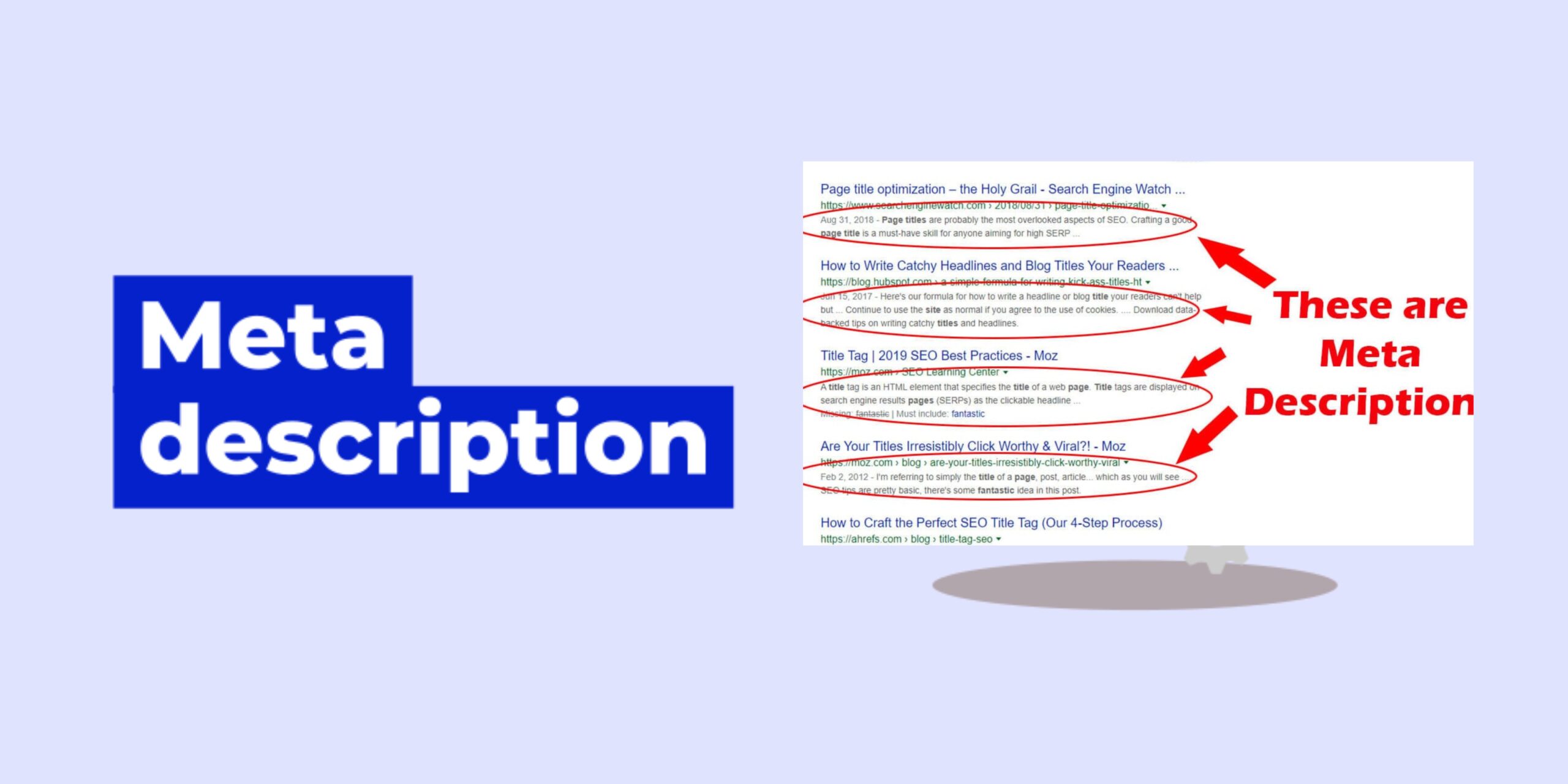A meta description is a concise summary or snippet of text that provides a brief description of the content of a web page. It is an HTML meta tag that doesn’t directly impact the ranking of a page on search engines but plays a crucial role in attracting users to click on the link in search engine results pages (SERPs).
Key points about meta descriptions include:
- Content Summary: The meta description summarizes the content of the web page. It should provide a clear and compelling overview of what users can expect to find if they click on the link.
- Length: While search engines don’t have a strict character limit for meta descriptions, it’s recommended to keep them concise, typically between 150 to 160 characters. This ensures that the full description is visible in search results.
- Relevance: Like the title tag, the meta description should be relevant to the content of the page. It should accurately reflect the information, products, or services offered on the webpage.
- Call to Action (CTA): Including a call to action in the meta description can encourage users to click on the link. Phrases like “Learn more,” “Discover,” or “Find out why” can create a sense of urgency or curiosity.
- Unique Descriptions: Each page on a website should have a unique meta description. This helps search engines understand the specific content of each page and provides users with distinct information.
Example of a meta description:
htmlCopy code<meta name="description" content="Web Tech Vision offers the best digital marketing services in the UAE. Our expert team provides SEO, social media management, and web development to elevate your online presence. Learn more about our services.">
In this example, the meta description provides a concise overview of the digital marketing services offered by Web Tech Vision, encouraging users to learn more about the services provided by clicking on the link in the search results.

